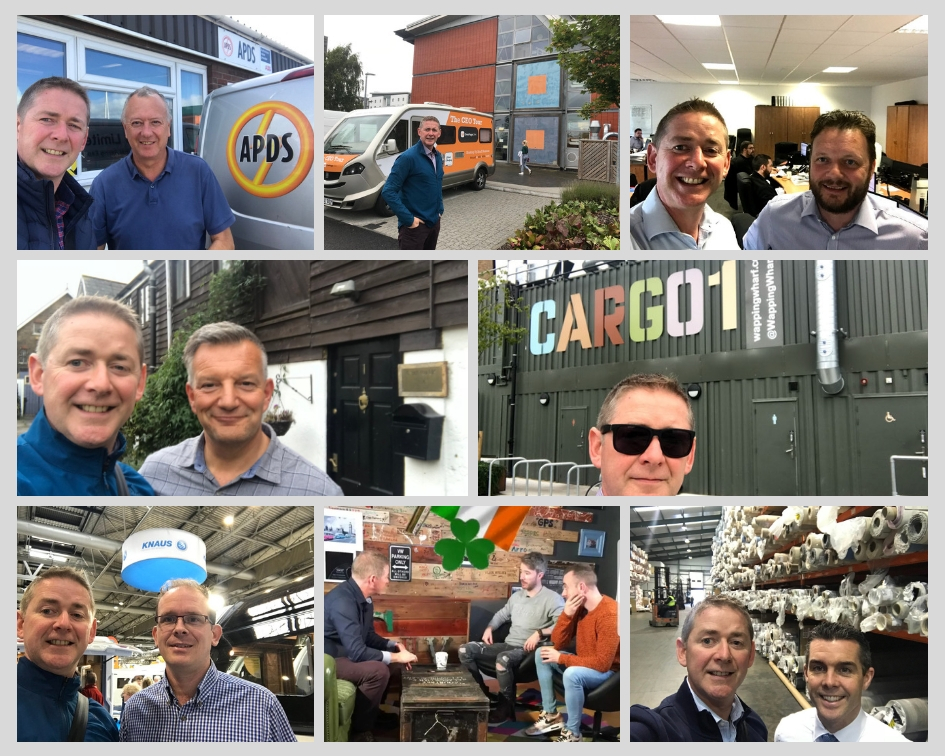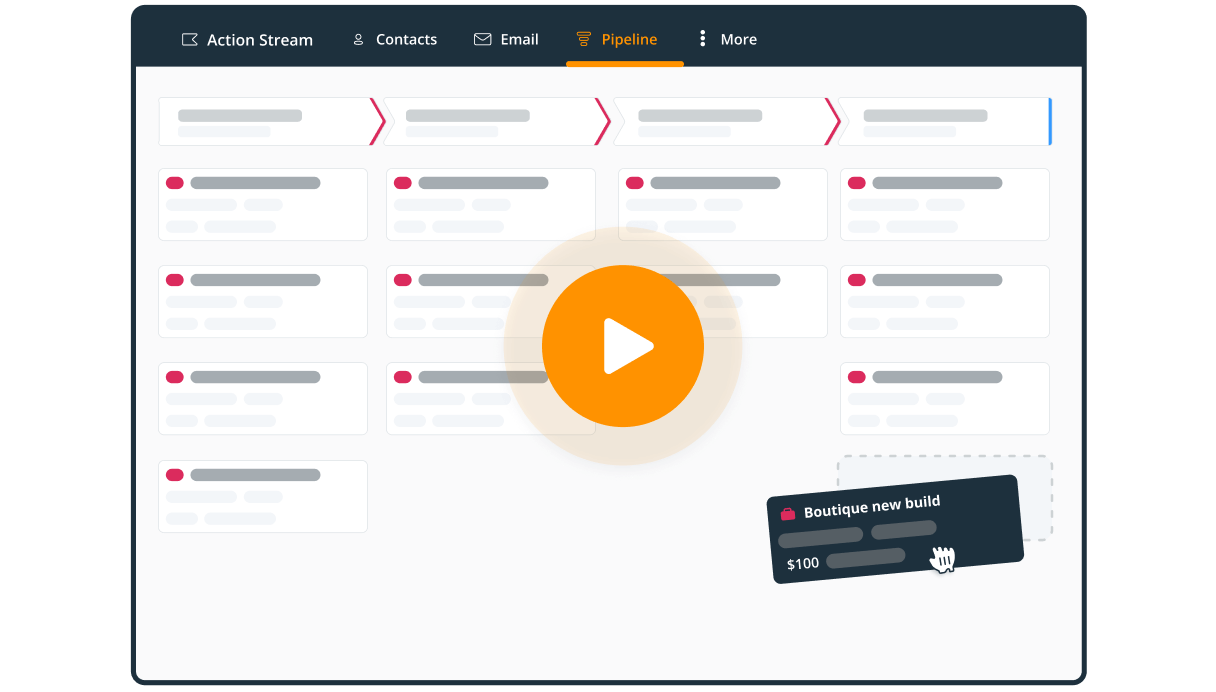
11 years ago, we founded OnePageCRM in one of the most densely populated and highly concentrated markets, with Salesforce controlling over 23% of the market share.
Growing a company in such a market is tough.
Yet, during the last 9 years, despite not raising any external funding, we’ve remained profitable and kept growing steadily year-over-year.
There’s one key ingredient behind this success: we consistently spot and challenge assumptions.
In this article, I’ll briefly show how we turned a very competitive market into our main advantage — and how you can do the same for your business.
The false allure of the blue ocean
Many entrepreneurs want to build a product in a new space—something that has never existed before.
So it’s not surprising that we often talk about red vs. blue oceans in entrepreneurial workshops.
If you’ve never heard these terms before, they were coined by W. Chan Kim and Renée Mauborgne a few decades ago. Red oceans are an analogy for existing markets with fierce competition. This competition is so ruthless that it turns the ocean bloody red.
Blue oceans, on the contrary, are new, vast, and deep markets that are unknown and not touched by the bloody competition (not yet at least).
When thinking about starting a business, it’s tempting to look for the blue ocean, whose clean and unchartered waters promise fast growth and abundant profitability.
But if you look closely at the red ocean, you might notice that its weird color is not necessarily caused by shedding innocent blood. Sometimes it’s just a lot of rubbish floating around.

These pieces of trash are assumptions and beliefs that have been held for a long time and just stuck around contaminating the once-clean water.
If only you can identify these assumptions and remove them, you might discover that the red ocean has as much room for growth and maneuvering as the blue ocean.
Competition can actually be a good thing.
Learning from your competition
Since the CRM market is relatively old, it has accumulated quite a few assumptions over the last decades.
But it’s not just the CRM market.
No matter what industry you’re in, you also have to deal with a lot of hidden assumptions, irresistible temptations, and difficult balancing acts. But it’s not always easy to spot them.
In this section, I’ve compiled a list of 6 key steps that can help any business identify these obstacles, overcome them, and thrive in a competitive market.
1. Let go of the core assumption
Every industry or product category has that one core assumption deeply ingrained in its fabric. For CRMs, it’s the idea that a CRM system should be used mostly for holding data in a central database, rather than putting it into action.
In 2010, I had a small company that was building e-commerce web apps for other businesses. I wanted to grow it so one day I just googled: “How do you increase sales?” and came across a few articles mentioning sales actions.
I then had to google “What are sales actions?” It turns out these are just the small things salespeople do every day, like send an email, schedule a meeting, jump on a call, create a proposal, and so on.
Equipped with this new knowledge, I started looking for a sales tool that would help me become more organized and do these actions more effectively.
To my surprise, I found no CRM that had anything to do with sales actions. They were just databases for holding information. Their focus and dashboards were on charts and graphs, but nothing to help “move the gauges on these charts!”
Since there was no suitable solution for our company back then, we decided to build a simple in-house CRM system with a focus on sales actions.
But as it turned out, we were not the only business that needed such a tool. So we made the product public — and several years later, we now have users in over 80 countries.

2. Avoid temptations
Having a tool that can do it all sounds very attractive.
But if one product does everything, it cannot be equally good at everything. It might do project management very well but maybe it’s only 50% as good at doing sales.
Instead of going down the all-in-one route, I like to think about going à la carte.
An à-la-carte system doesn’t promise to replace all the apps in the world. It does one job very well and is not afraid to acknowledge its borders. So it seamlessly integrates with any other app you might need to run your business efficiently. Adding unnecessary features will only blow up the size and price of our application.
In other words, in OnePageCRM, we are not trying to reinvent the wheel. Instead, we are bringing all the pieces of the wheel together so your business can run far and smoothly.
3. Serve your market
I have a friend who’s a sales manager for a pharma company. We were talking about CRMs once and he said that his company was rolling out a new CRM.
I asked if there were any actual salespeople involved in its specification and customization. It turned out there wasn’t one, just managers and IT staff—all non-daily users of CRM.
It didn’t come as a surprise to me. This is what usually happens with CRMs. They are often built for management and have everything that managers want to see there—“the figures”. That’s why many CRMs end up being a bit clunky and laborious to use.
When we began building OnePageCRM, we started the other way around. We asked ourselves: “What does the salesperson need and want to see in a CRM?”

To answer this question, we first looked at what salespeople are doing every day, then asked what information can we gather from that, and how to arrange it into metrics and KPIs that will help managers make better decisions.
We didn’t start with managers, we started with salespeople. We’re very clear on who our main users are, and we want to protect their experience.
4. Ask questions
There is a long-held belief that a sales quote/proposal should be in a PDF.
Yet, by talking to our customers and listening to their feedback, we discovered that lots of SMBs were putting estimates inside the email body. Not in a PDF. They just didn’t have the time to create PDF files for the scale of their projects.
So we embraced their way of doing things and made it easy for our customers to add super professional quotes right inside their emails. And if they need a PDF at some point—they can use built-in email templates to have pre-attached PDFs with company information too.
5. Find balance
In tech companies, the (technical) tail is sometimes wagging the (product) dog. Or vice versa.
To build a high-performing and fast application, you need a happy marriage between your tech and product teams.
That’s why I so much value the debates (or healthy arguments) between our product team, CTO Mikhail, designer Kate, and whoever else is involved in a project.

These productive conversations help us blend together different perspectives and experiences and find the much-needed balance.
6. Root for your customers’ success
And the last but not least: if you want to retain users, a lot of it has to do with how you make them feel when they first interact with your product or service.
Your customers need to know you are there for them. If they get a warm fuzzy feeling in their tummy that they have made the right decision, you are off to a good start.
That’s why we pay a lot of attention to the language we use in the app. For example, we customize OnePageCRM for new users based on their industries.
Consistent communication is also important.

Some customers might have a simple question that they could have got answered in documentation.
But even if they have a simple question, we treat this as an opportunity to reach out and connect. We want them to feel like we are sitting on their side of the table, shoulder to shoulder, helping them solve their business problems.
It’s more about fitting our application into their business than their business into OnePageCRM.
Wrapping up
The next time someone tells you that you’re crazy for thinking about starting a business in a very competitive market, just think about that guy who founded a CRM company on the west coast of Ireland…
This will make you feel less crazy, for sure. 😁
Thanks for reading and till next time!










